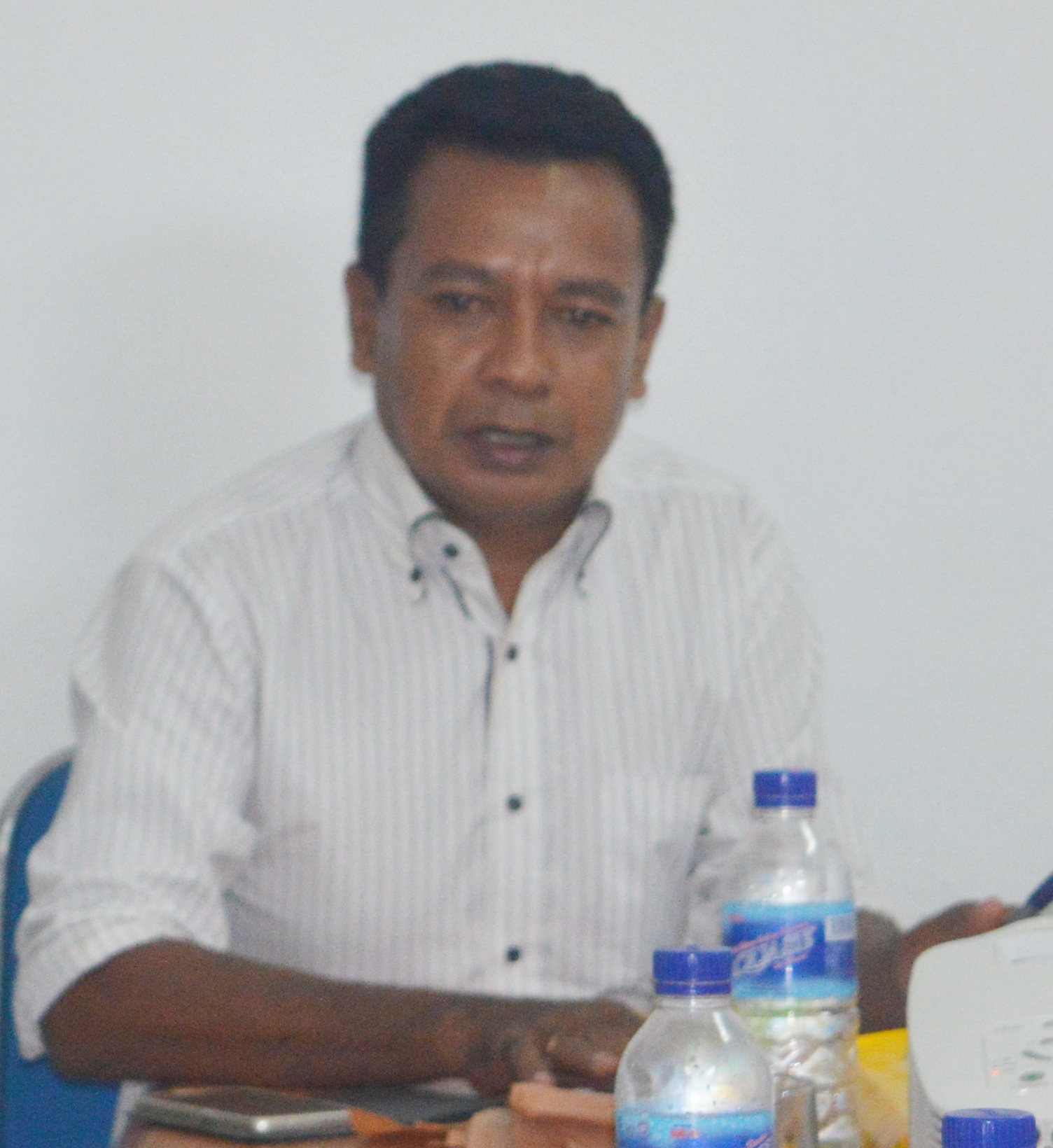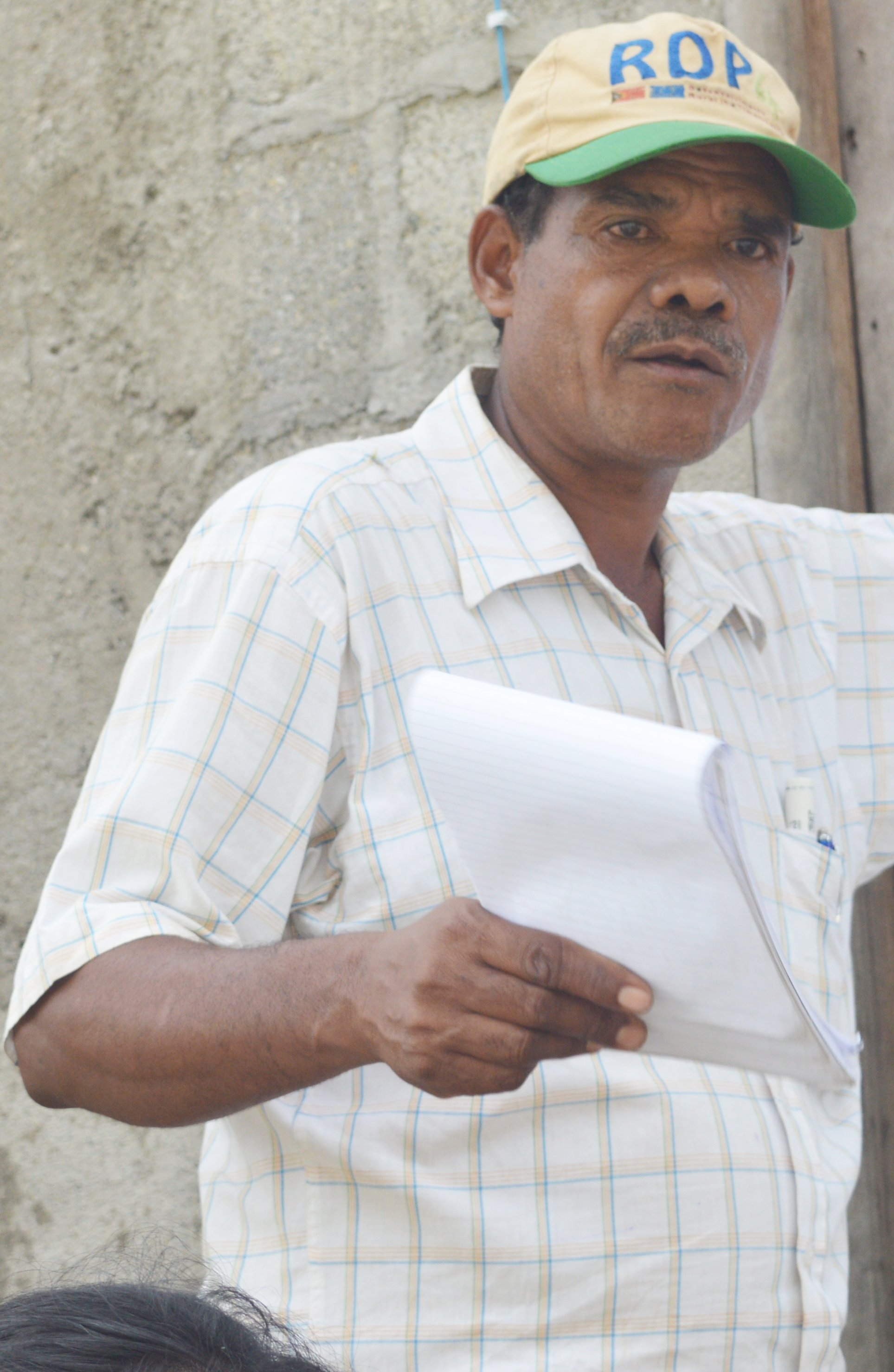The trilateral project “Sufficiency Economy and Business Promotion in the Agriculture Sector” under the Timorese – Thai – German Trilateral Cooperation organised an on-site training and coaching activity related to farm assessment, productivity improvement and value chain analysis for 10-13 master trainers from the Ministry of Agriculture and Fisheries of Timor-Leste (MAF) from 3 to 11 October 2016 in Dili, Timor-Leste. MAF is supporting extension workers in the field to improve their role and capacity in working with the target farmer groups in four villages, namely Lihu, Ulmera, Metinaro and Hera. This will enable the target farmer groups to increase the quantity and quality of their products for market promotion and directly sell them for a higher income
The Department of Agricultural Extension (DOAE) and the Capacity Building and Study Center for Community-Based Resources Management, Sukhothai Thammathirat Open University (CRC-STOU) of Thailand provided technical inputs with support from GIZ-TL under the Support to Peaceful Development through Innovative Employment Promotion (IEP) project, together with existing technical expertise of MAF.
The approaches used were mainly participatory and experience-based with presentations and demonstrations on technical inputs and field practice with minimal supervision. A variety of class activities were organised for the extension workers to become familiar with the tools and innovations introduced before applying them with farmers during the field visits. The topics focused on farm assessment tools for data collection, value chain analysis, and innovations and technologies for better farming, such as organic pesticides and fertilisers, seed selection, and stove-making. For example, the farm assessment tools will allow them to record conditions in each village during each period to calculate household production. Moreover, the experts demonstrated how such produce as bananas could be processed into new products and how rice seeds could be developed to taste different.
Using local resources and materials, the technologies were adapted as appropriate within the context of each village. Overall, the reception of the villagers was positive, and they expressed particular enthusiasm in learning about the innovations as it will help them become more self-reliant. During the coming months, the extension workers will work closely with the target groups to monitor the effectiveness and impact of the innovations as well as ensure that the results can be further enhanced and showcased as models for other farmers and extension workers from which to learn. With knowledge about the Sufficiency Economy Philosophy and value chain analysis, the project will also work to identify product champions of each village and develop them as next steps to self-sufficiency.

Mr. Amaro Ximenes
National Director of Agriculture, Horticulture and Extension of MAF
“Through the training, target farmers should produce organic fertilisers from their own households. For example, SPS chemical pesticides imported from Indonesia will be minimised in the future. These must be produced by the target farmers in their households and sold, thus reducing imported pesticide products and support farming activities in Timor-Leste.”

Bernardinho Casimiro
Ermera Extensionist
“The training organised by the Trilateral cooperation between Thailand, GIZ and MAF worked with three municipalities (Dili, Ermera and Liquica). The project aims to support the target groups in increasing the production of vegetables for consumption and sale to the market; thus helping to raise the income of the farmers.”